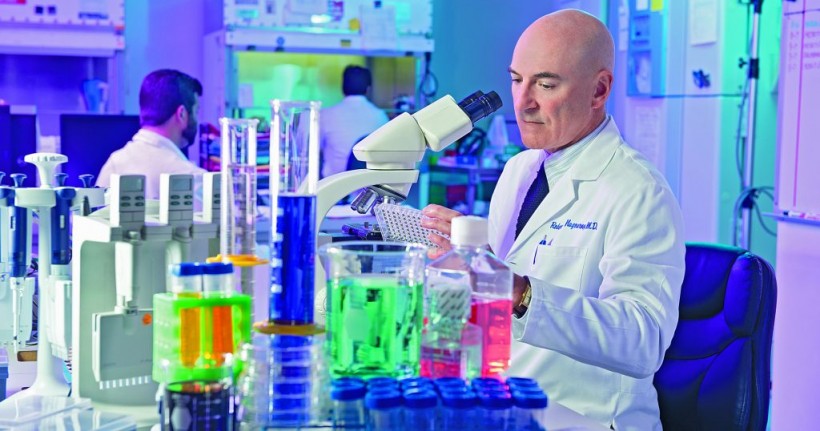For anyone with advanced cancer, determining the proper course of treatment can be critical for success. This may seem obvious, but with cancer, there is often not enough time to try multiple treatments. Patients unfortunately may not have enough time.
Thus, the more tools oncologists have to determine the right course of treatment for a given individual, the better the outcome the patient will have.
That is why our new study on women with ovarian and uterine cancer recently published in Gynecologic Oncology is so very important. Our researchers at Nagourney Cancer Institute teamed with the University of California-Irvine, Federal University of Sao Paulo in Brazil and Todd Cancer Institute to discover that metabolic signatures found in the blood of gynecologic cancer patients can identify those at the highest risk of relapse. The results could herald a future in which oncologists like myself could use a blood test done at the time of diagnosis to better manage patients with advanced gynecologic malignancies.
The focus of our research appropriately was platinum resistance, defined as the lack of response or evidence of clinical relapse within six months of platinum-based chemotherapy. Platinum-based therapies are the basis of most gynecologic cancer treatments, making platinum resistance an important determinant of survival.
In this study, we used quantitative Mass Spectrometry to measure almost 200 different metabolites in the blood and identified metabolic signatures that predicted platinum resistance in patients receiving chemotherapy for ovarian and uterine cancers. The study gave us a window into human biology, one that offers the opportunity for better patient outcomes and more rapid and efficient drug targeting.
The patients who were candidates for carboplatin plus paclitaxel submitted blood for quantitation of metabolites and surgical specimens for the isolation 3-dimensional organoids that were used to measure individual patient platinum resistance, ex vivo. Results were correlated with response, time to progression and survival.
The study identified patients with the highest risk of relapse and death with a sensitivity of 92 percent and a specificity of 86 percent.
With the growing interest in human metabolism as an important component of cancer biology, this study in gynecologic cancer is the most recent of several of the team's analyses in breast cancer, multiple myeloma and other cancers that confirms metabolomics' role as one of the most promising platforms in cancer research.
* This is a contributed article and this content does not necessarily represent the views of sciencetimes.com















